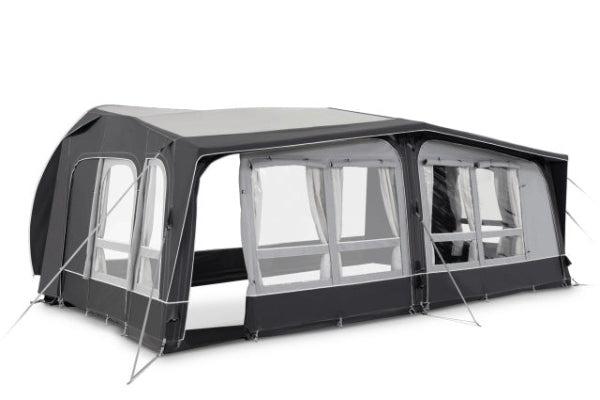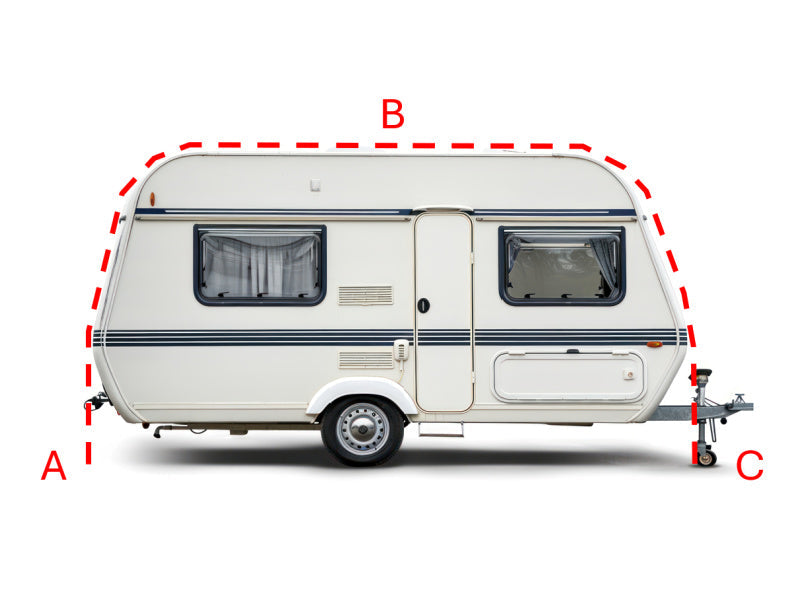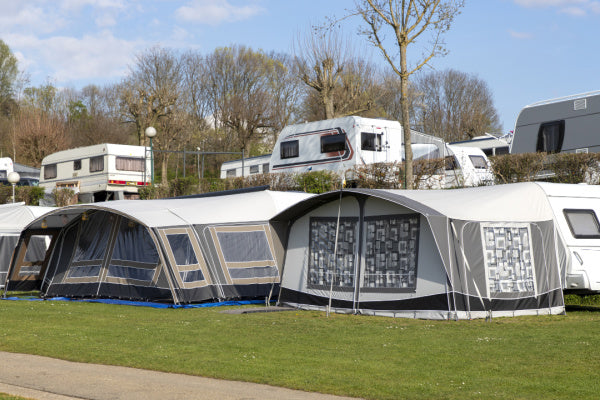What Type of Fridge is Best for a UK Camper?
Choosing the right camping refrigerator can make or break your trip—nobody wants soggy sandwiches or warm beer in the Highlands. Short answer? Compressor fridges are best for most UK campers—they’re efficient, powerful, and weather-ready. But hold tight—we’ll unpack all your fridge options and help you pick the perfect fit.
Understanding Your Camper Fridge Options: The Main Contenders
The Three Main Types of Camper Fridges Explained
Compressor Fridges (12V/DC and AC): How They Work, Common Pros & Cons
Compressor fridges cool quickly—much like the fridge in your kitchen. They’re efficient and ideal for campers travelling in groups or staying for extended periods.
These fridges are known for their reliable cooling and lower energy use. However, some models can generate a noticeable hum, and they’re usually pricier up front.

Absorption Fridges (2-Way or 3-Way: Propane, 12V, AC): How They Work, Common Pros & Cons
Absorption fridges are a popular pick in caravans and motorhomes. Their biggest advantage? Silence.
They operate using gas, electricity, or both—making them versatile for different setups. Just be aware that they need to be kept level to work properly, and they can struggle in hot weather.
Thermoelectric Coolers/Warmers: How They Work, Common Pros & Cons
Thermoelectric coolers are the most budget-friendly of the bunch. They use a fan-based system to move heat and are great for short trips.
These are light, simple, and easy to carry. That said, they don’t cool as well in warm conditions and can quickly drain a battery.
Key Differences at a Glance: Compressor vs. Absorption vs. Thermoelectric
Cooling Performance & Temperature Consistency
Compressor fridges perform best in all weather, maintaining a stable temperature regardless of climate. Absorption fridges work well under normal conditions but lose effectiveness in high heat. Thermoelectric coolers are the least reliable in this regard.
Energy Efficiency & Power Source Flexibility
Compressor models are energy-saving and typically compatible with solar or 12V setups. Absorption fridges offer more power source options—running on gas, 12V, or 230V mains. Thermoelectric units are generally less efficient and better suited to powered sites.
Noise Levels and Operational Quirks
Absorption fridges are silent, which is a big plus. Compressor fridges are usually quiet but may emit a low hum. Thermoelectric coolers have a fan that runs constantly. Remember, absorption fridges must be level to operate properly.
Typical Cost Ranges (Initial Investment)
Thermoelectric models are the most affordable. Absorption fridges vary depending on size and configuration. Compressor fridges tend to be the most expensive, though their efficiency often makes up for it in the long run.

Matching the Fridge Type to Your Camping Style & Needs
Critical Factors to Consider Before You Choose
Your Typical Camping Style: Off-Grid Boondocking vs. Hookup Sites
If you’re heading to remote areas like the Scottish Highlands, you'll need a fridge that performs well off-grid. Compressor and 3-way absorption fridges are ideal here.
For those who stick to campsites with electric hookups, your options are more flexible.
Power Availability: Reliance on Battery/Solar vs. Propane vs. Mains Power
If you depend on solar or batteries, compressor fridges are a great match. If you rely on gas, absorption fridges shine. For those who plan to use mains power, any type can work—but some will be more efficient than others.
Space & Size Constraints in Your Camper (Built-in vs. Portable)
Consider how much space you have available. Bigger fridges aren’t always better—especially if you’re working with a compact layout.
Many smaller models make clever use of space and are easier to move around. Think about what fits your setup best.
Budget: Upfront Cost vs. Long-Term Operational Costs & Convenience
If you’re on a tight budget, thermoelectric coolers are appealing. But they can become inconvenient on longer trips. Absorption fridges cost more initially but offer flexibility. Compressor fridges, though pricier, provide reliable performance and long-term savings.
Climate & Environment: Performance in Hot vs. Cold Conditions
UK weather is known for its unpredictability. A fridge that handles wide temperature swings is crucial. Compressor fridges are the safest bet. Thermoelectric options may struggle during heatwaves, and absorption units need proper ventilation to keep cool.
Which Type is “Best” For Common Camper Scenarios?
For the Off-Grid Adventurer (Boondocking, Van Life)
Go for a compressor or 3-way absorption fridge. These are designed to handle off-grid power setups and extended stays in remote locations.
For the Weekend Warrior (Campgrounds with Amenities)
You don’t need anything too fancy. A smaller compressor or thermoelectric unit should work well. Portability and ease of use are your top priorities.
For the Budget-Conscious Camper
Thermoelectric coolers or small absorption fridges offer a decent middle ground. Look at what trade-offs you can accept, such as less cooling power or needing access to ice.
For Campers Needing Freezing Capability
If freezing food is important, compressor fridges are the best option. Some come with separate freezer compartments or dual-zone cooling for flexibility.

Final Considerations: Installation, Portability, and Longevity
Built-in vs. Portable/Chest Style Fridges
Built-in fridges are common in larger motorhomes and caravans, but take up fixed space. Chest-style or portable compressor fridges are great for flexible setups, particularly in campervans or smaller rigs.
Ventilation Requirements for Different Fridge Types
Absorption fridges need proper ventilation to avoid overheating. Compressor models benefit from airflow as well, but are generally more forgiving. Always follow the manufacturer’s installation guidance.
Durability and Maintenance Expectations
Compressor fridges tend to be rugged and low-maintenance. Absorption fridges need levelling and occasional checks. Thermoelectric models are simple but not designed for rough conditions.
Other content you might like:
- What Can You Fit In A 4L Fridge?
- Can You Put A Regular Refrigerator In A Camper?
- What Size Fridge Is In A Camper?
- Why Is My Camper Fridge Not Staying Cold?
- What Is The Best Camping Fridge?
- How Big Is A 6 Litre Mini Fridge?
- How Big Of A Battery Bank Do I Need To Run A Refrigerator?
- How Much Is A Camping Fridge
- Is A Camp Fridge Worth It?
- What Is The Most Efficient Camping Fridge





Leave a comment